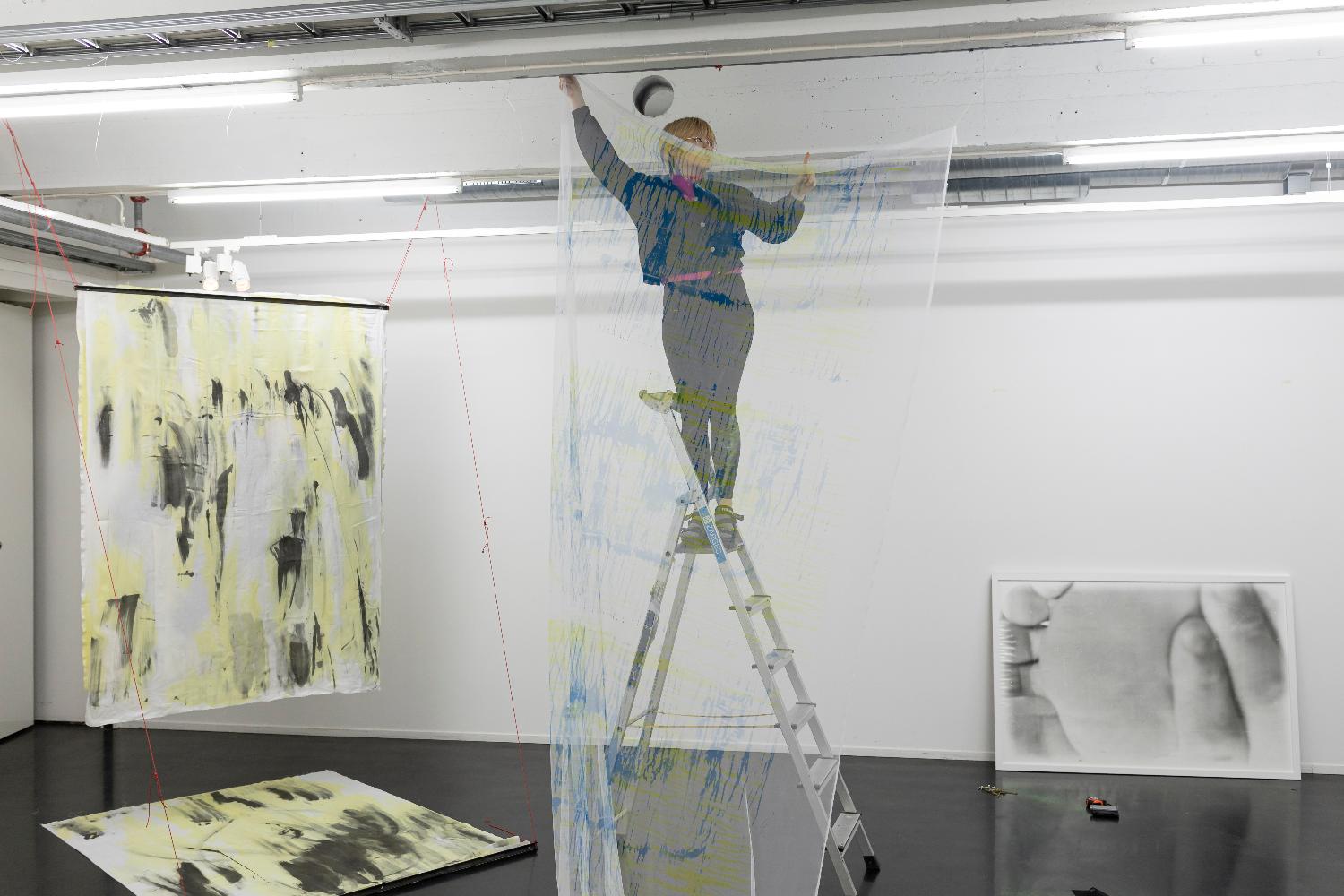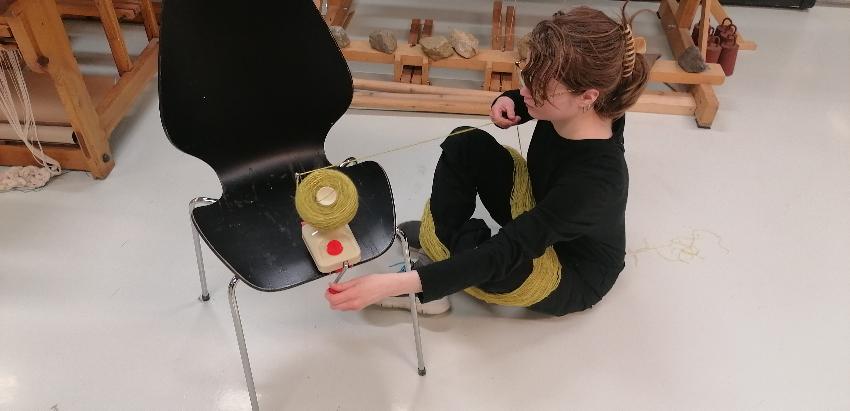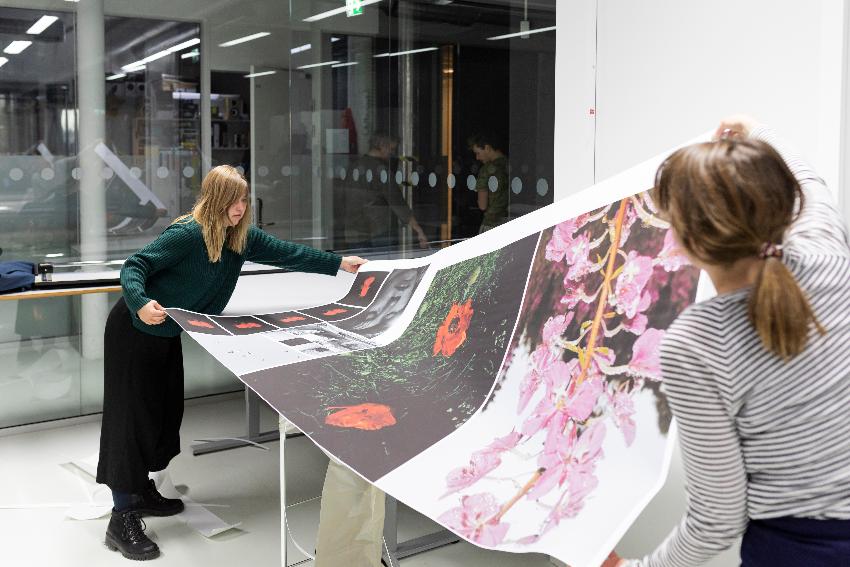Master of Fine Art is a two-year programme that aims to give the students the knowledge required to become independent artists. The focus of the study is on self-critical reflection, as well as development, and intensification of the student's own artistic projects. The programme also aims to enable students to become active contributors within contemporary art and related areas of society, both locally, nationally and internationally.
- A completed bachelor’s degree of Fine Art or equivalent, with at least 80 ECTS in either art, design, architecture, crafts, photography.
- Applicants with education from non-Nordic countries must document English language proficiency.
- Passed admissions test
Required documentation:
Portfolio
The portfolio should be a document (PDF) that presents works the applicant considers relevant to their artistic practice.
The portfolio has the following requirements:
- Documentation of 6 – 8 work samples. Each work sample can include up to 5 pictures, for example how and where the work is installed, close-ups etc.
- Written reflections in English on the submitted work samples (maximum of one page)
- Written description in English about artistic direction and focus (maximum of half a page)
For longer videos, you need to provide a brief synopsis or trailer, that needs be attached to the video. Videos or audio files must be stored online (on your own website, Vimeo, YouTube, etc.). You need to provide a link to the work alongside the list of submitted works. You are responsible for ensuring that the address of the website is correctly written, that the website functions properly. The video must be viewable in a standard web browser.
Curriculum vitae (CV)
- A brief and concise overview of prior education and relevant experience for the programme.
Admissions test:
The admission test is divided into two parts and consists of:
- Evaluation of submitted documentation. All complete applications are assessed academically, and a number of applicants are then invited for an interview.
- Interview. The interview will be conducted digitally.
In the evaluation, emphasis is placed on the artistic quality of the applicant's work and their understanding of their own artistic practice. Artistic quality takes into account ideas, originality, craftsmanship, presentation, and reflection.
The admission test is assessed by an admission committee.
You will find more information about the international admission here.
Du finner mer informasjon om søknad og opptak her.
Admission capacity
6 places
EU/EEA applicants: 7181
NON-EU/EEA applicants: 2053
Nordic applicants: 8038
Program description
The purpose of the study programme, Master of Fine Art is to develop the student's ability to work as a professional artist. The programme aims to reflect the contemporary conceptions of what it means to work as a professional artist and thereby offer students the opportunity to develop their individual ambitions to work professionally in the field of fine arts. As the main objective is to educate artists, the creation of works of art, exhibitions and other artistic expressions constitutes the most important aspects in the programme of study. The programme also provides a foundation for other professional roles in and relating to the field of art.
Learning outcomes
After passing the programme, the candidate has the following learning outcomes:
Knowledge
- In-depth knowledge of artistic methods and techniques
- Detailed knowledge of relevant art history, theory and professional ethics
- Thorough knowledge of presentation and documentation, and the ability to reflect on and place artistic works in context, produced by oneself or by others
- Knowledge of the planning and execution of a solo exhibition, a group exhibition and text production
- In-depth knowledge of the prerequisites for artistic practice from a societal perspective
Skills
- Ability to present, contextualize and reflect on artistic works produced by oneself or by others, both in written and oral form
- Ability to plan and implement artistic projects in different display formats and contexts
General competence
- Practical and theoretical understanding of artistic work at a high professional level
- Understanding of various ethical issues related to artistic work
- Ability to analyse relevant professional and research ethical issues and to apply them in artistic work at a high professional level
- Ability to innovate in both artistic production and in methods of communication
Studieplan
Language of instruction
English
Teaching and assessment
The teaching will provide the students with tools that enable them to acquaint themselves in the international art field, and to reflect on and competently discuss artistic work, produced by themselves or others, both textually and orally.
Teaching and learning activities:
- Specialisation in artistic methods and techniques
- Tuition in relevant art history, theory and professional ethics
- Introductory tuition on prerequisites for a professional art practice
- Specialisation in one’s own form, style or genre of art production
- Supervised writing on contextualization and reflection related to one’s own artistic practice
- Planning and executing both a group exhibition and a solo exhibition
- Participation in graduation project with work of art, as well as contributing to a publication connected to the show
- Study trips
Students will be evaluated through coursework requirements and examinations. Attendance requirements and assignments must be met and approved in order to qualify for examination. For detailed descriptions of requirements, see individual course descriptions.
Students may apply for exchange in the second semester (30 ECTS). The first semester must be passed before an international exchange semester can be commenced.
Destinations for studies abroad
Lisa Torell
Professor i samtidskunstIsabel Kjelstrup Mortensen
StudierådgiverThis is what the students are saying
Vil du vite hvordan det er å være student ved UiT? Følg @uitstudent på Instagram eller TikTok, hvor studenter deler fra livet på universitetet. Her får du praktiske tips om studier og studentliv, nyttig informasjon om campus og muligheten til å stille spørsmål om alt du lurer på.
For mer informasjon om studietilbud, forskning og muligheter direkte fra UiT, kan du følge @uitnorgesarktiske på Instagram eller TikTok. Her finner du offisielle oppdateringer og innsikt i hva universitetet har å tilby.





